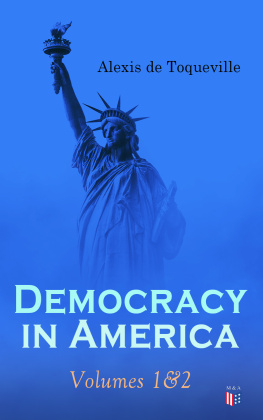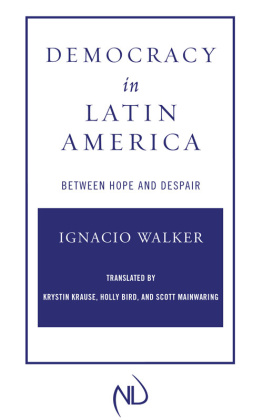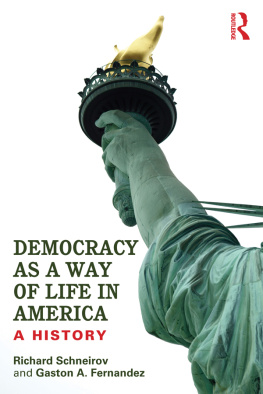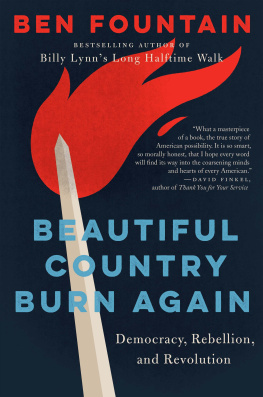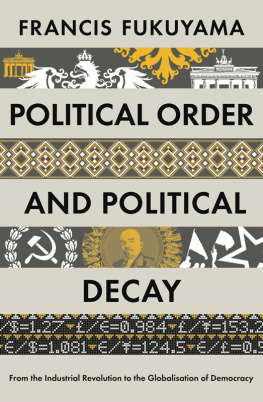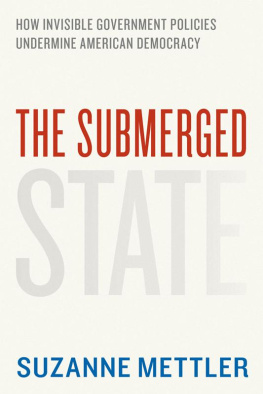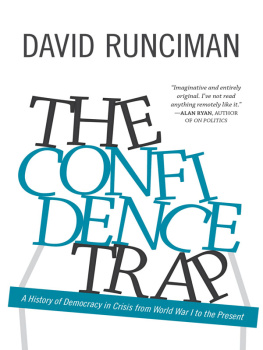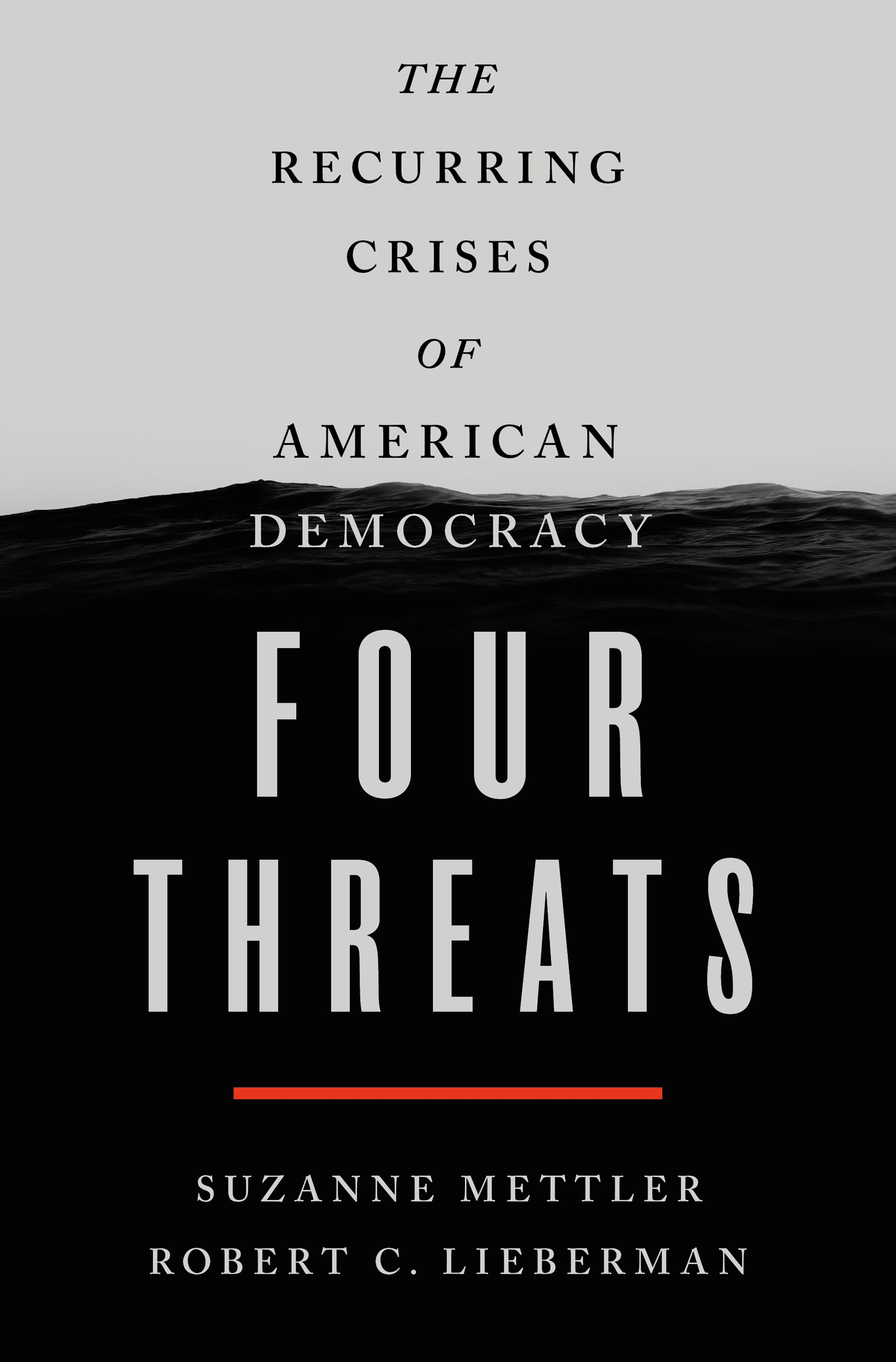The author and publisher have provided this e-book to you for your personal use only. You may not make this e-book publicly available in any way. Copyright infringement is against the law. If you believe the copy of this e-book you are reading infringes on the authors copyright, please notify the publisher at: us.macmillanusa.com/piracy.
When the president used his power to target immigrants, the press, and his political opponents, the sheer overreach of his actions shocked many citizens.
Tensions among the nations political leaders had been escalating for years. Embroiled in one intense conflict after another, both sides had grown increasingly distrustful of each other. Every action by one camp provoked a greater counterreaction from the other, sometimes straining the limits of the Constitution. Fights and mob violence followed.
Leaders of the dominant party grew convinced that their only hope for fixing the government was to do everything possible to weaken their opponents and silence dissent. The president signed into law provisions that made it more difficult for immigrants (who tended to support the opposition) to attain citizenship and mandated the deportation of those who were deemed dangerous or who came from hostile nations. He then put his pen to a law that would allow for the prosecution of those who openly criticized his administration, such as newspaper publishers.
The year just described was not 2017 or 2018. Rather, it was 1798, when President John Adams signed the Alien and Sedition Acts. His allies in Congress, the Federalists, argued that these measures were necessary, in anticipation of a possible war with France, to protect the country from internal spies, subversive elements, and dissent. The Federalists disapproved of immigrants, viewing them as a threat to the purity of national character. They particularly disliked the Irishthe largest groupbecause they largely favored their political opponents, the Republicans, and sympathized with the French. Or as one Federalist congressman put it, there was no need to invite hordes of Wild Irishmen, nor the turbulent and disorderly of all the world, to come here with a basic view to distract our tranquility.
Critics of the new laws raised their voices in protest. The Republicans charged that they amounted to barefaced efforts to weaken their faction, which happened to include most Americans not of English heritage. Two leading Republicans, Thomas Jefferson and James Madison, went so far as to advise state governments to refuse to abide by the Sedition Act, resolving that it was unconstitutional.
Political conflicts boiled over into everyday life. Federalists and Republicans often resided in different neighborhoods and attended different churches. Federalists, centered particularly in New England, prized their Anglo-American identity, and even after the Revolution they retained their affinity with the mother country. Republicans saw themselves as cosmopolitan, cherishing Enlightenment ideals of liberty and equality, and they championed the French Revolution and held disdain for Britain. By 1794, partisans in urban communities were holding separate Fourth of July ceremonies. Republicans read aloud the Declaration of Independencepenned by the founder of their party, Thomas Jeffersonas evidence that independence had been their own achievement, while the Federalists offered toasts to their leader, President George Washington. The Republicans viewed themselves as the party of the people; one prominent politician among them chided the Federalists for celebrating not we the people but we the noble, chosen, privileged few.
To many people at the time, the Alien and Sedition Acts bore an unsettling resemblance to the kinds of government overreach that had spurred them to fight a war for independence just a few decades earlier. The acts comprised four laws, three of which placed restrictions on immigrants and appeared to be a strategic attempt to shape the electorate by excluding potential voters for the opposition in order to tip the scales of power. The fourth, the Sedition Act, made it illegal to publish any false, scandalous, and malicious writing or writings against the Government of the United States, or either House of the Congress of the United States, with intent to defame or to bring them into contempt or dispute. By denying freedom of speech and freedom of the press, it outlawed criticism of the government and deprived citizens of the opportunity to become more fully informed by hearing alternative points of view. The measures gave the president power to exert control over Americans lives in ways removed from congressional authority, and therefore less accountable to popular control. Some state governments outright refused to abide by the new federal law, intensifying divisions. And on the streets, mock violencethe burning of effigieswas swiftly transforming into the genuine article, as politically motivated beatings and open brawls proliferated. In one case, on July 27, 1798, Federalists in New York marched up Broadway singing God Save the King just to antagonize the Republicans; the latter responded by singing French revolutionary songs. Soon the singing contest gave way to violence as fighting ensued.
Watching the growing chaos and division, Americans of all stripes worried that their experiment in self-government might not survive the decade. They feared that monarchy would reassert itself, aristocracy would replace representative government, or some states might secede from the Union, causing its demise. The early beginnings of democracy in the United States were fragileeven at a time when some of the Constitutions framers themselves, along with other luminaries of the era, held public office.
Should we contemporary Americans worry about the future of our democracy? Is it in danger? While we do not share our predecessors fears that the British crown might rule us once again or that the nation might lapse into civil war, subtler signs of danger abound. We face the weakening of the checks and balances that prevent democracy from sliding into tyranny. The rule of law, long taken for granted by Americans, has been eroded by a president who sees the government as an instrument to advance his own personal and political interests. Elections, the foundation of democracy, are becoming less free and fair due to the distorting influence of money, misinformation, and foreign meddling. While the United States has long distinguished itself by its relative absence of outright corruption, public office now increasingly appears to befor somea platform for private gain rather than an opportunity for public service. Hard-won civil rights, civil liberties, and voting rights face challenges; even journalists engaged in routine investigative reporting have been subjected to intimidation. And above all, American politics is becoming a matter of us against them among political leaders and ordinary Americans alike, dividing families and communities, fostering hostility, and impeding our collective capacity to solve problems and govern ourselves productively.
Many remain confident that democracy will endure, and certainly reasonable arguments can be made to support that assumption. After all, the United States boasts the worlds longest-functioning constitution and a long-standing reputation as a beacon of democracy for the world. We typically regard our political institutions as bulwarks against the emergence of tyranny or authoritarianism. And although American democracy developed slowly and haltinglythwarted at the outset by the enslavement of African Americans, the subordinate status of women of all races, and the suppression of Native Americansstill the nations history is often depicted as a story of progress toward the fulfillment of a democratic ideal.


